Who is Aaron Korbs and What is His Volume Profile Trading Formula/Method?
Aaron Korbs is the founder of Tradacc – a trading education platform that houses 2 main courses/programs: Volume Profile Formula & Profile Method. The former is a low-cost introductory course and the latter is a full-blown training & mentorship program.
Aaron Korbs’ personal trading methodology centers around the volume profile – which is an extremely powerful, yet highly underutilized tool amongst retail traders for organizing and analyzing critical market-generated information.
Most traders tend to go down the popular path of basic candlestick patterns (like morning/evening stars, bullish/bearish engulfing, double tops/bottoms, etc.) in combination with lagging indicators (like moving averages, Bollinger bands, etc.).
But these surface-level patterns and indicators are often misleading and ineffective – and don’t do a great job displaying the “quality” of price. Volume profile, on the other hand, is an “under the hood” perspective that displays meaningful market structure.
Volume profile is the backbone of Aaron Korbs’ entire methodology. He also uses volume-weighted average price (VWAP) and some order flow tools (like heat map and footprint charts). But everything centers around auction market theory and profiling.
He’s a specialist that makes a consistent $500+ per day (on average) trading just 1 market/product/timeframe/method.
What is Aaron Korbs Trading – Breakdown of Aaron Korbs’ Personal Trading Methodology:
4 Questions & Answers to Detail What, Where, When, and How Aaron Korbs Trades:
Q: What Market is Aaron Korbs Trading?
A: Futures
Aaron Korbs trades futures because they’re superior to stocks, options, forex, cryptocurrencies, etc. – especially in terms of intraday trading. The mix of liquidity, regulation, leverage, ease of shorting, and tax-friendliness is unmatched by any other market.
I think most developing traders shy away from futures due to a lack of familiarity, but it’s often a huge mistake. Personally, I ignored futures for years assuming my focus should be on stocks and options, but now I almost exclusively trade futures.
I know a lot of people don’t have the same experiences and perspectives that I have when it comes to trading and the landscape of trading education. But to me it’s clear: futures markets are where all the best opportunities are for serious intraday traders.
Q: What Product is Aaron Korbs Trading?
A: E-Mini S&P 500 (ES)
Within the futures market, Aaron Korbs concentrates on one single product: e-mini S&P 500 (ES). From time-to-time, he’ll venture into other markets like e-mini Nasdaq 100 (NQ) or Crude Oil (CL) – but the primary focus is e-mini S&P 500.
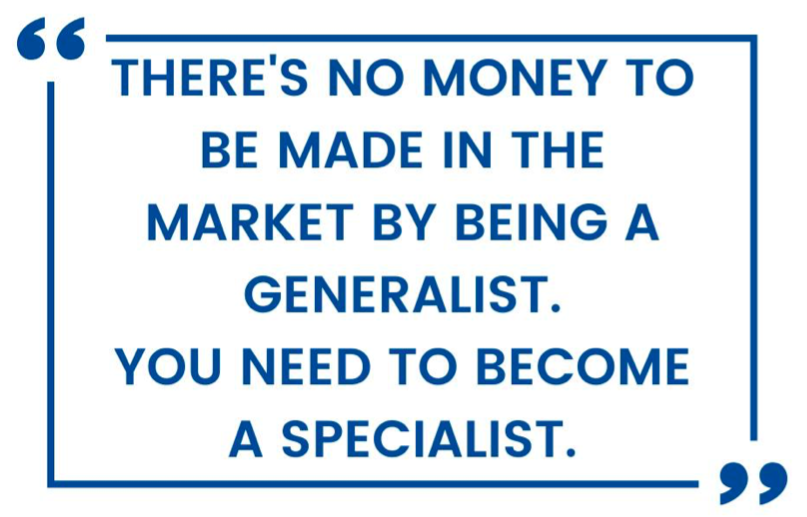
One of the biggest problems most beginner traders have is dabbling in all sorts of different markets, products, and trading styles. They learn a little bit about stocks, options, forex, cryptocurrencies, day trading, swing trading, position trading, etc.
But they never become great at any one thing – they just keep jumping from one thing to the next. Aaron Korbs, on the other hand, trades the same product every single day, building a deep relationship with it, because markets reward specialists – not generalists.
Q: What Time Frame is Aaron Korbs Trading?
A: Intraday
Aaron Korbs trades on an intraday time frame – entering and exiting his positions within the same trading session. He doesn’t take on the risk of holding overnight. All of his trades take place within normal trading hours and he’s flat by the close.
But just because he’s placing his trades on an intraday basis, it doesn’t mean that he ignores higher time frame context. In fact, multi-day, weekly, monthly, and sometimes even yearly reference levels play a part in how he approaches each intraday session.
He’s not just analyzing each day in a vacuum and scalping based on short-term order flow signals/triggers. Instead, he’s considering the full contextual picture – and I believe this is a major reason why his particular approach is so strong/effective.
Q: What Methodology is Aaron Korbs Trading?
A: His Profile Method
Within futures markets, Aaron Korbs is trading e-mini S&P 500 (ES) contracts on an intraday basis using his Profile Method – which as we’ve already touched upon, centers around the volume profile. It’s an extremely specialized, robust approach.
It’s not just a fixed/systematic set of “buy here, sell here” rules. There are models/frameworks for structure, of course, but there’s a good amount of discretion involved. Good trading is a skill that requires individual analysis and adaption/refinement.
So the best part about Aaron Korbs’ full-blown Profile Method training and mentorship program are the regularly scheduled premarket prep, live trading, and Q&A sessions for personalized immersion and feedback.
The Wrap Up – Is Aaron Korbs’ Volume Profile Formula/Method Worth Pursuing?
In my opinion, the key to Aaron Korbs’ personal trading success, as well as the success of his students, is specialization.
And not just specialization in random, low-quality things. But specialization in the best market for intraday trading (futures/ES) with the best possible tools/indicators for viewing and interpreting market behavior (volume profile & VWAP).
|Get Started Following Aaron Korbs For Free on His YouTube Channel|
|Learn More About Aaron Korbs and His Volume Profile Method → Full Review|
This is precisely where most beginners get it wrong. It’s definitely OK to check out your options and look into various markets, products, timeframes, and strategies/systems in order to see what resonates most with you – so don’t get what I’m saying twisted.
But the dabbling phase shouldn’t last forever. There’s simply no money to be made trying to be a jack-of-all-trades. It pays to choose one specific method and become an expert at it. Because once you develop consistency, there’s plenty of room to scale.
So the sooner you choose a specific approach and build a high level of competence/skill around it, the sooner you can start scaling up your operations to produce life-changing profits. The specialist approach makes Profile Method well worth pursuing.
Most people get it backwards. They take a generalist approach and never build a high-degree of skill/consistency around anything in particular, resulting in an inability to successfully scale their operations into something worthwhile. Don’t be like the masses.
Written by Matt Thomas (@MattThomasTP)
Related Pages:
- What is Korbs YouTube – Who is Aaron Korbs?
- Best Futures Trading Indicators – The Top 2 on My Charts
- Best Futures Trading Mentors – 3 of the Best in the Industry
- Volume Profile Trading – What Does Volume Profile Tell You?
- Free Futures Trading Education – Top 5 Educational Resources

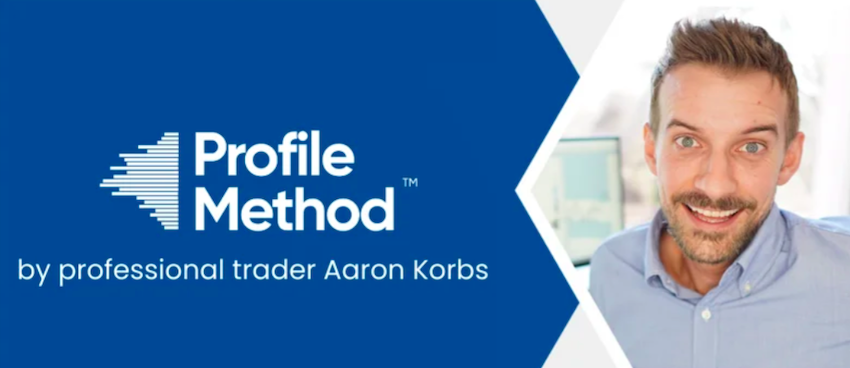
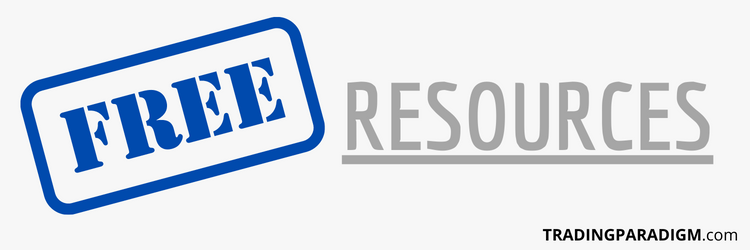
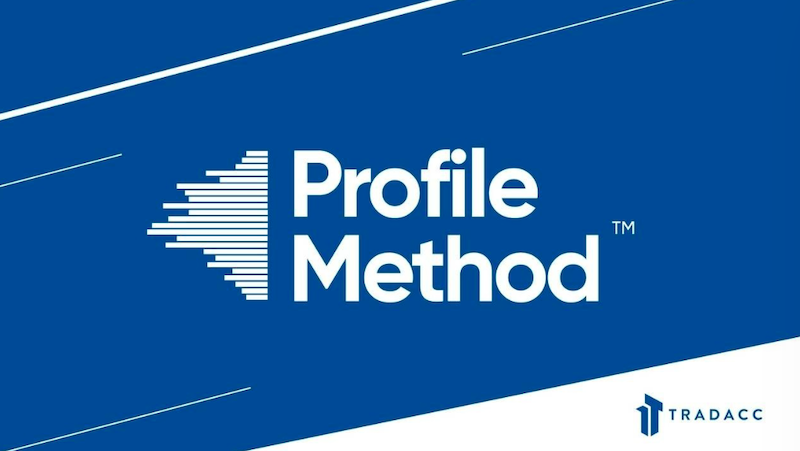
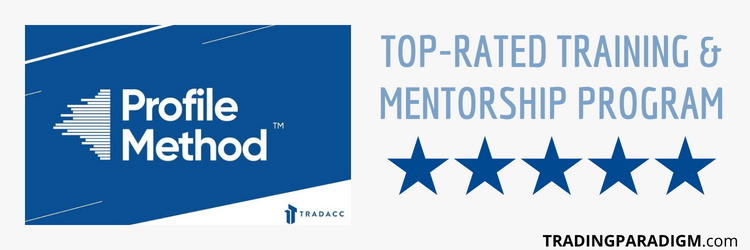
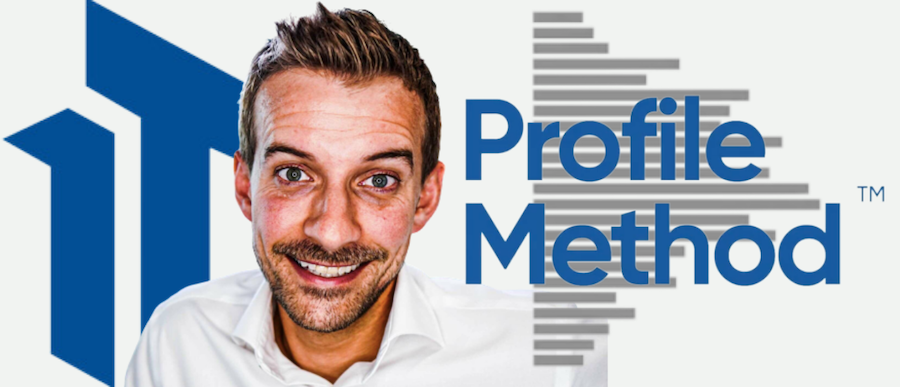

I know many traders want to consider learning about volume profile trading. By specializing in this specific area, I think I will see significant improvements in my trading results. I like that the Profile Method trading program by Aaron Korbs focuses on intraday trading and developing a deep understanding of futures, auction market theory, and profiling. After exploring the basics of volume profile trading thanks to various resources shared on this site and how it can benefit me, I’m excited to dive in and learn more about this intriguing method!
Hi Herman – I appreciate the comment!
I personally believe that volume profile is one the best (if not THE best) trading tools available. The only other indicators/charting studies I would put up there with it are market profile & VWAP. I know traders use all kinds of indicators, and which one is the “best” is a highly subjective discussion. But based on my own personal experience, I don’t think anything comes close to matching profiling & VWAP (and I’ve used/tested quite a bit of indicators over the years: RSI, MACD, moving averages, Fibonacci, etc.). I’m certainly not saying these other indicators are useless, but they don’t hold the power of profiling. In my opinion, profiling tools are simply the best tools to build deep market competence and trading skill around.
I knew nothing about volume profile trading until I started reading this, although I must say a bit of the terminology went over my head. Nonetheless, the main takeaway that I gather is that Aaron Korbs’ approach involves specializing in intraday trading and developing a deep understanding of one particular area (futures, auction market theory, and profiling). This specialist type of approach makes so much sense to me. You can see specialization pay off in almost every industry. Although my knowledge is limited, your article has motivated me to explore profile trading and Aaron Korbs’ Youtube channel to learn more. Thank you for this informative piece.
No problem, Lucy – happy to help!
I’ve used a lot of different trading indicators/tools over the years and I personally believe that a methodology rooted in auction market theory and profiling is the strongest way to view/analyze markets. It’s honestly kind of surprising to me how little profiling is used amongst retail traders when volume at price (aka volume profile) is essentially the most meaningful piece of information that a trader can have. Profiling has certainly been growing in popularity over the past several years thanks to guys like Jim Dalton, Morad Askar, Josh Schuler, Aaron Korbs, Merritt Black, etc. – but it’s still extremely underutilized in my opinion. Both volume & market profile are incredible tools to deeply understand and specialize in.
What can I say, I know nothing about trading. But this sounds promising and Aaron Korbs sounds trustworthy, so I passed the information on to my brother-in law. I am sure he will find it useful since he is just starting his business in trading. Thank you for the inspiration.
You managed to re-ignite my interest in trading. I must admit however many of the terms went over my head. The clear message I am getting is that Aaron Korbs method is about specialising in intraday trading and focusing on one thing and getting to know it intimately. Makes sense when I think about futures, which deals with forcasting the status of an item at some future time, which in my opinion is best done with knowledge of the history. Or am I getting this totally wrong. As you might have guessed my knowledge is limited but your article has prompted me to check out Aaron Korbs Youtube channel to see what more I can learn. Thank you.
I think your understanding of what futures markets/products are is a little off, but you’re absolutely right about Aaron Korbs’ focus on specialization. And I think specialization is critical for every trader. There are virtually unlimited markets, products, timeframes, and methodologies to potentially trade that it becomes easy to continuously strategy-hop looking for the holy-grail. But being a jack-of-all-trades and master of none doesn’t work in markets. Generalists don’t tend to get rewarded very well. So Aaron Korbs chooses to specialize in one market (futures), one product (ES/e-mini S&P 500), 1 timeframe (intraday), and 1 methodology (his Profile Method rooted in auction market theory and volume profiling analysis). His YouTube channel – and especially his Daily Profile Show – is a great resource to learn more about futures, auction market theory, and profiling.
I have heard of Tradacc before but wanted more details about the founder Aaron Korbs. After reading your detailed review about Aaron Korbs and his development programs, I believe he is a trustworthy person and knows a great deal about trading. I found your review very helpful in making my decision to get started with the Volume Profile Formula.
Hi Jannette – I appreciate the kind words.
Keep me posted on how things progress as you work your way through Aaron Korbs’ Volume Profile Formula – and potentially his other courses/programs like Funding Accelerator and Profile Method as well.
I have come across Aaron Korbs before, but am not familiar with this methodology of volume profile trading. Most people steer clear of futures trading, because it seems to be a very complex field. So is Volume Profile trading recommended for advanced traders, rather than beginner investors?
Although I have some ETFs in the S&P 500, I have not heard of the e-mini S&P 500 (ES) before. Is it only available in the futures market? Does it also have diverse markets like property, precious metals, emerging markets etc? Thank you
I believe you’ve commented on multiple other Tradacc/Aaron Korbs and volume/market profile-related posts on this site – so I’m a little confused by how you wouldn’t be familiar with volume profile?
But regardless, I would suggest that every trader and investor check out volume profile because it’s a great tool for viewing market behavior/participation (which prices is the market rejecting? Which prices is the market accepting?). This is critical information that can be applied to any market, product, and timeframe – and this information can’t be seen (or at least not very well) through any other tool (besides market profile). So it’s not just a tool for futures trading – it can help organize price and volume data in any market/product.
And just to clear things up a bit, please realize that there’s a major difference between short-term trading and long-term investing. In my opinion, futures are by far the best markets/products to trade on an intraday basis (if you’re serious/committed to the craft), but I wouldn’t personally “invest” in them. I use them strictly as intraday vehicles because the mix of transparency, regulation, liquidity, versatility, and tax benefits are unmatched. But the leverage and margin requirements makes them hard to manage risk on a long-term basis. You also have to realize that futures are contracts that expire every so often, so managing those expirations and adjusting to the “front month” isn’t really conducive to a long-term, buy-and-hold type of approach.
I hope that helps clear up some of the confusion in regard to futures and profiling. Take care!
Hello, I read a bunch of articles on your website and it is definitely packed full of information. I am a very novice trader who only participates from time to time. I have seen two issues that you could possibly consider taking a look at. First, the terminology and all the professional talk about trading is definitely for the mid-level to expert trader. Like I stated before that I have been educating myself lately but am basically a newbie and although I know very little there were times in your script that I was completely lost. If you are targeting the expert traders you should be fine. The second issue is similar to the first, if you are trying to convince some new to join and attempt to risk their money a more basic approach to informing them where to start should be taken into consideration. Again, if you are after the experienced traders then I believe they should know what you are talking about and be able to understand the direction you are leading them.
Hi Matthew – I appreciate your feedback.
But I’m not trying to “convince” newbies to trade/jump into markets by sharing basic, surface-level content (that doesn’t actually help them). I’m trying to attract serious/committed individuals who are willing to work hard to make trading for a living (or at least a significant portion of income) a reality. being a dabbler won’t ever amount to anything meaningful. Far too many retail traders approach markets this way (simply as a hobby) – which is fine if they’re just looking for entertainment. But no dabbler/hobbyist has the skill/competence to pull consistent profits out of the market. Trading is a skill-based, peak performance activity/profession – much like that of a pilot, surgeon, or professional athlete. So don’t let the ease of access fool you into thinking this game is easy.
I’m not necessarily targeting mid-level to expert traders, but I am targeting individuals who are serious about building the real habits and skills required for long-term, sustainable market success. It’s perfectly fine to be a beginner – that’s where everybody starts and I have nothing against “newbies”. In fact, I created the Trading Success Framework course for beginners to understand what being a real trader truly entails. And if you actually want to be a real trader, being a dabbler/hobbyist won’t cut it. I’m not trying to just feed the masses what they want (like alert/signal services, newsletters, chat rooms, and lousy technical analysis courses that don’t actually help them); I’m trying to feed the masses what they need to succeed (legitimate education, training, and mentorship for skill/habit acquisition and self-sufficiency). I apologize if this comes off the wrong way, but I’m not catering to individuals who want to be hobbyists/dabblers; I’m catering to individuals who are actually serious/committed to their own success.
Trading futures is not something you hear about a lot. Reading this article made me interested so much to go search for it. It’s really amazing how Aaron Korbs put together a method this noteworthy.
Aaron Korbs is the creator of Tradacc, a platform that aids people to get trained about methods of futures trading.
His suggestions about trading were practical, as he mentioned, “markets reward specialists – not generalists.”. Learning a little about everything is not what makes you successful; forming a robust connection with a specific trade method/system will work and change your path.
This article gave me a general idea of futures trading, provided excellent resources, and explained a powerful volume profile strategy worth pursuing.
Hi Liam – I really appreciate you sharing your thoughts on Tradacc and Aaron Korbs.
I completely agree that futures trading isn’t something most new/developing traders are all that familiar with – which is unfortunate because it’s by far the best option for intraday trading (as opposed to stocks, options, ETFs, forex, cryptocurrencies, etc.). I understood the resistance to futures years ago when all that existed were “big” contracts. But now that mini contracts, micro contracts, and numerous funded trader programs exist – the door to trading futures has opened to everybody regardless of personal capital.
So at this point, I honestly think that the only reason a lot more people (specifically retail traders) aren’t trading them is a lack of familiarity. The masses are much more familiar with stocks, options, forex, cryptocurrencies, etc. – so that’s the path they tend to go down by default – and they’re not even aware of the opportunity that futures present. But the advantages are numerous in regard to liquidity, regulation, transparency, leverage, flexibility, tax-friendliness, etc. Not to even mention that after nearly a decade of going through various trading courses/programs/services, pretty much all of the best educators/mentors I’ve come across trade futures (almost exclusively). So it’s a shame that most people (even individuals who actively trade) don’t even know what futures are. One of my main goals with this site is to change that – which is why many of my recent articles are focused on futures trading.
There’s a lot of truth to the statement: “you’re only as good as the markets/products that you trade”.
A lot of folks want to avoid trading futures. It is much more technical than stocks. I appreciate you spelled-out Korbs concentration on e mini S$P 500. I think it important that one must focus on one aspect of the market, or else one will be lost in the valley, where there are too many options to choose from.
Thanks for sharing your thoughts on futures and Aaron Korbs!
I’m not sure if it’s people wanting to “avoid” futures or that they’re too “technical” – I just think it’s more of a matter of familiarity. Most people simply don’t even know what futures are, and as a result, don’t even consider them as an option. When I first started trading, I did the same thing a lot of others do: I naturally started off with stocks, then ventured into options, and only years down the line did I realize the incredible benefits of futures. At this point in time, it’s almost exclusively what I trade on an intraday basis. And I don’t see any reason for changing that. Futures are simply superior markets/products and I wish I had come across them much sooner.
And to your point about Korbs focusing mainly on the e-mini S&P 500, I do the exact same thing (and there’s plenty of opportunity/profit-potential sticking to just 1 product like this). Most people do the opposite – trying to be a jack-of-all-trades – but then they never build a close relationship with 1 product and excel at trading it. Becoming a specialist (as opposed to a generalist) is extremely important as a trader – and Aaron Korbs stresses this point constantly.
I never heard about volume profile until I read this and did some additional research, and it all makes sense. I also never traded futures before, but I heard many people are making fortunes trading them with the right approach. I will check it out and try out Aaron Korbs method. Thank you for that. Have a great day. Regards. Vlad
No problem, Vlad. Glad you found value in this information.
I’ve tried/tested all kinds of different indicators in the past, but in my opinion/experience – nothing matches profiling. It simply displays the purest, most meaningful view of market context/structure/posture. I would feel completely lost and frustrated if I had to trade without it. When I first came across it, things just clicked for me. I finally felt like I had a real understanding of how markets move/behave. And I’m certainly not the only person who has made this realization. I don’t think that it’s a mere coincidence that all of the best traders and trading mentors I’ve come across: 1) tend to operate within futures markets because they offer superior trading products, and 2) view/analyze markets through the lens of auction market theory and profiling. These traders/trading educators trade and teach these powerful concepts/principles/methods because they flat-out work. Overall, building competence/skill around profiling – in my opinion – is the best thing developing traders can do to become legitimate traders who actually understand market movement/behavior (as opposed to blindly following guru alerts or fixed buy/sell systems).